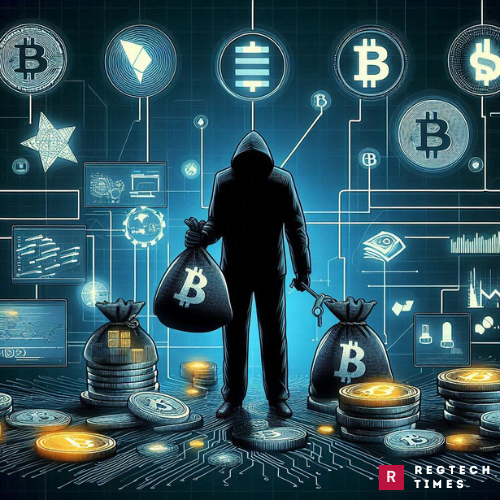The cryptocurrency mining industry, once celebrated for its innovation and potential to revolutionize finance, is now under intense scrutiny. A recent Europol report has cast a shadow over the sector, highlighting its vulnerability to financial crimes such as money laundering and fraud. This comes from the time when former U.S. President Donald Trump is publicly supporting Bitcoin miners, adding a complex political dimension to the ongoing debate.
Europol’s Alarming Findings
The Europol report raises serious concerns about the cryptocurrency mining industry’s susceptibility to criminal exploitation. The agency outlines how mining operations are being used as fronts for money laundering. Criminal actors purchase mining equipment with illicit funds, effectively “cleaning” the money through what appear to be legitimate business activities. Even if these mining ventures are not profitable, they serve as a convenient cover for hiding the origins of illegal earnings.
As per the Europol report, one of the most worrying aspects is ‘the usage of mining pools by the ransomware attackers’. These criminals hijack computers to mine cryptocurrencies, a practice known as cryptojacking. This illicit method diverts processing power from the victims’ systems, leading to significant financial and operational losses. The report also details cases like the BitClub Network, a Ponzi scheme that scammed investors out of millions by promising returns from non-existent mining pools.
Cryptojacking and Mining Pools
Cryptojacking is now posing a very serious threat to the world of cryptocurrency. By secretly installing malware on a victim’s computer, attackers can utilize the system’s processing power to mine cryptocurrencies. This not only affects individual users but can also have severe implications for businesses and organizations, resulting in increased electricity costs, reduced system performance, and potential data breaches.
Mining pools, which allow multiple miners to combine their resources and share rewards, have also been exploited. Criminals infiltrate these pools to launder money or run fraudulent schemes. The Europol report highlights the need for stricter oversight and regulatory measures to protect investors and maintain the integrity of the cryptocurrency industry.
Donald Trump’s Endorsement
Amidst these revelations, Donald Trump has taken a surprising stance in favor of bitcoin mining. At a meeting with top executives from major mining companies like Riot Platforms Inc. and CleanSpark Inc. at his Mar-a-Lago resort, Trump expressed his strong support for the industry. He described Bitcoin mining as a potential bulwark against the introduction of a Central Bank Digital Currency (CBDC), which he and others fear could centralize financial control and erode economic freedom.
Trump’s endorsement is noteworthy, particularly as he gears up for another presidential bid. On his Truth Social platform, Trump declared, “Bitcoin mining may be our last line of defense against a CBDC.” He also advocated for the remaining bitcoins to be mined in the U.S., positioning the country as a leader in the global cryptocurrency mining market. This alignment with the Bitcoin mining industry signals a broader political strategy to appeal to libertarian-leaning voters and tech-savvy entrepreneurs.
Market Reactions and Future Implications
The financial markets reacted swiftly to these developments. Shares of Riot Platforms and CleanSpark showed modest fluctuations, reflecting the sensitivity of the market to both regulatory scrutiny and political endorsements. Riot Platforms’ stock saw a slight decrease of 0.7% in after-hours trading after closing 0.96% higher, while CleanSpark’s stock edged 1.59% higher.
The Europol report and Trump’s endorsement highlight the complex interplay between regulation, politics, and market dynamics in the cryptocurrency sector. The industry stands at a crossroads, facing the dual challenges of enhancing security and transparency while navigating the evolving political landscape. As cryptocurrencies continue to gain mainstream acceptance, the need for robust regulatory frameworks and responsible industry practices becomes increasingly critical.
In conclusion, the cryptocurrency mining industry is under the microscope for its potential role in facilitating financial crimes, as detailed in the Europol report. At the same time, political figures like Donald Trump are throwing their weight behind the industry, recognizing its economic and strategic significance. The future of cryptocurrency mining will likely be shaped by how effectively it can address these challenges and capitalize on the opportunities presented by political endorsements and market growth.



